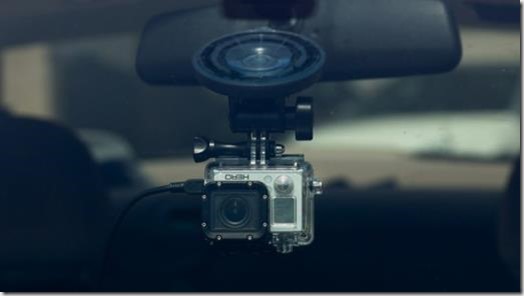I get a lot of stuff from the various newsfeeds. About 90% of it is either completely irrelevant, or of non-UK origin (so not usually relevant). Of the non-UK stuff. most of it is North American, and if you break that down still further then you find that about a third is to do with banning texting while driving, a third is about politicians arguing that banning texting while driving would be “unconstitutional”, and the final third is either about surprise discoveries that texting when you’re driving is dangerous or research by Clown Colleges that claim there’s no proof that texting while you’re driving is dangerous.
I gave up reporting on these stories ages ago – initially because I couldn’t keep up, and subsequently because they’re all the same; basically a lot of crap. However, this one is such a good example of why they’re crap that I thought I’d mention it.
If you thought the UK was bad when it comes to spelling out the obvious to people who are too stupid to be able to walk and chew gum at the same time, just be thankful we don’t have it as bad as the Americans do. You see, to anyone or anything with more intelligence than a small pebble, it is clear that your driving is highly likely to be seriously impaired if you try and send a text to someone while you’re behind the wheel or travelling in traffic or at speed. It’s at least as dangerous as, for example, going to sleep.
In short, texting while driving IS dangerous, and no amount of Clown College “research” or political waffle about banning it being “unconstitutional” is going to alter that.
So the link is funny in that the Americans see the need for a simulator to show people that effectively shutting your eyes while driving at 70mph in heavy traffic might be a bad thing. To be fair, you have to remember that the average American teenager can get behind the wheel no matter how incompetent they are at driving (sometimes, from as young as 14). All the same, it’s a monumental waste of money designing a machine that simply demonstrates the obvious.
Just in case you don’t believe me, take a look at this link which came in a couple of days after I wrote the stuff above. South Dakota has just passed a new law banning texting and driving. But if only it were that simple.
You see, this law has been the topic of fierce debate for several years. This year alone, the argument was between two competing bills, and centred on whether or not tickets could be issued for texting on its own, and whether cities would be allowed to pass and enforce their own laws. The stalemate was so pathetic that many cities went ahead and introduced their own bans. However, the new bill is very watered down – it is a petty offence warranting a mere $100 fine, and it cannot be enforced unless the driver was stopped for something else!
You need to read the rest of the story to understand the mess American law is in. Talk about complicated.
Then there was this one from Salt Lake City. Here, a bill only got passed by 41 votes to 28. In Utah, texting is already banned, but the law doesn’t say anything about surfing, tweeting, or watching TV footage, etc. In America, if something isn’t specifically illegal then it is absolutely legal. There are no grey areas.
As I say, the newsfeeds have many of these every day.
